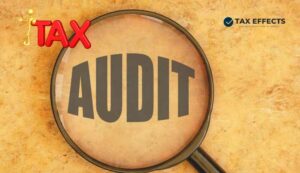The “Settlement” we all must have heard about this word. In general, it is considered as the mediation or mutual coordination between the parties on any certain issue. Yes, You are absolutely right but here we are gonna discuss the Income-tax settlement.
When we say the Income-tax settlement we obviously do not contradict with the general understanding of the word settlement. In the income tax act as well there is a provision for settlement between the parties.
But how and when it should be headed for? Is it really beneficial for the user? Why we should opt for the settlement? These are some of the questions which we are gonna discuss in here today. So, Let’s get started:
1. What is Settlement in the Income Tax Act?
When Assessees have multiple pending cases with the A.O. and there is a possibility that there might be more cases of default due to which there might be huge penalties and it may lead to prosecution as well.
In such cases, the assessee has been given with an option to come clear with all such penalties and prosecutions by declaring all such hidden incomes which have not been shown earlier.
This is called ‘Settlement’ under the income tax act. This opportunity is being given ONCE in a lifetime.
2. What is the Settlement Commission (SETCOM)?
For the purpose of settlement, the Govt. has made one Alternative Dispute Resolution (ADR) body to deal with such cases named Income Tax Settlement Commission (ITSC) which is popularly known as Settlement Commission.
Settlement Commission (SETCOM) is the body of the Govt where the Assessee can disclose his undisclosed income and settle his cases.
3. When can SETCOM be approached?
The SETCOM can be approached in the following cases:
(i) Where the case is pending under section 143(3)/144/147/153A.
(ii) Also, it can be approached when the case has been set aside and referred back to the AO u/s 254/263/264.
CONDITIONS (for both cases):
– The assessee has made full and true disclosures of his income which was not earlier shown before the AO.
– S/He has also disclosed the manner under which it has been derived.
– S/He has disclosed the Amount of Additional Income tax payable on such case.
– The Assessee has paid the amount of additional amount of income tax and interest (if any) before making the application and also attached the proof of such payment with the application.
The Amount of Income tax payable on such case must be at least:
– Where it is a case of Search and Seizure (Raid): Aggregate Amount of additional income tax payable of (Preceding 6 years + Current Previous year) is EXCEEDING RS. 50 LACS.
– In any other case: Aggregate Amount of additional income is EXCEEDING RS. 10 LACS.
NOTE– If some of the documents have been recovered in RAID belongs to any Related Party to the raiding Assessee and becuase of such documents the raid is supposed to be conducted on such related parties as well, then such ralated parties could also proceed to the SETCOM.
But, in this case as well, the additional amount of income tax payable must be is EXCEEDING RS. 10 LACS.
4. How to calculate the Additional Amount of Income tax?
IN CASE THE APPLICATION PERTAINS TO ONE YEAR ONLY: The calculation of the additional amount of income tax shall be calculated as follows:
– When No Return of Income has been furnished: Then Additional amount of income tax would be the TAX ON TOTAL INCOME disclosed in the application.
– When Return of Income has been filed:
(i) Tax On [(Returned Income + Amount disclosed in the Settlement Application)]
(ii) Less: Tax on Returned Income
The resultant amount would be the additional amount of the Income tax.
IN CASE THE APPLICATION PERTAINS TO MORE THAN ONE YEAR: Calculate the additional amount of the income tax as such for each year and then aggregate them.
5. What is the Procedure of Settlement after the application has been accepted? [Sec. 245D]
Once the application has been fulfilled the above said criteria and the application has been accepted then the SETCOM shall proceed as follow:
(i) On receipt of the application, the SETCOM within 7 days from receiving the application ask the reason with the applicant that Why the application shall be allowed to be proceeded with? [It is generally a type of clarification from the assessee that he has actually made the application and it has been made with good intentions.]
(ii) After hearing the answer the SETCOM shall within 14 days from the Date of Application either Reject OR Allow the application to be proceeded with.
(iii) Once it has been allowed the SETCOM may ask for the report from the CIT within 30 days from the Date of Application.
[Now, CIT shall provide SETCOM the report within the next 30 days from when the SETCOM has asked it for. If CIT is unable to provide such report then SETCOM may proceed without the said report.]
(iv) When the above-asked report is being provided by CIT to SETCOM then within 15 days from receiving of such report the SETCOM will declare the Application Invalid OR proceed toward passing the order against the application.
(v) If not declared as Invalid: then SETCOM may again ask for any further information from CIT and also may ask the CIT to made further investigation and submit the report of it within 90 days from asking for such report. If CIT is unable to provide such report then SETCOM may proceed without such report.
After being satisfied with all the facts and circumstance the SETCOM shall pass the order WITHIN 18 MONTHS from the end of the month in which application was made.
IMPORTANT NOTE– The Order of Settlement shall be declared VOID if it was obtained by fraud/misrepresentation. Further, any of the matter covered by SETCOM shall be deeemd to have been Revived from the date of application for settlement.
Now, IT Authorities would be able to complete such revived proceedings within 2 years from the end of F.Y. in which settlement becomes VOID.
6. What is the position of the case after Settlement?
SETCOM on being satisfied that the applicant who has made application for settlement has made full and true disclosure of all fact and intention of the applicant was not to defraud the revenue then the SETCOM may grant immunity form:
- Prosecution for any offence under the income tax act.
- Imposition of Penalty under the income tax act.
- The SETCOM cannot grant immunity under any other Act other than the income tax act.
7. Some Important Points:
- An Application made shall not be allowed to be withdrawn by the applicant.
- SETCOM application is not maintainable if the case is pending with CIT/CIT(A)/ITAT/ANY COURT.
- Apprent Mistake: If there is any mistake apparent in the order of the SETCOM then it may suo-moto (by itself) or on an application made by Applicant OR CIT, pass rectification order within 6 months from the end of the month in which application for the rectification has been made.









